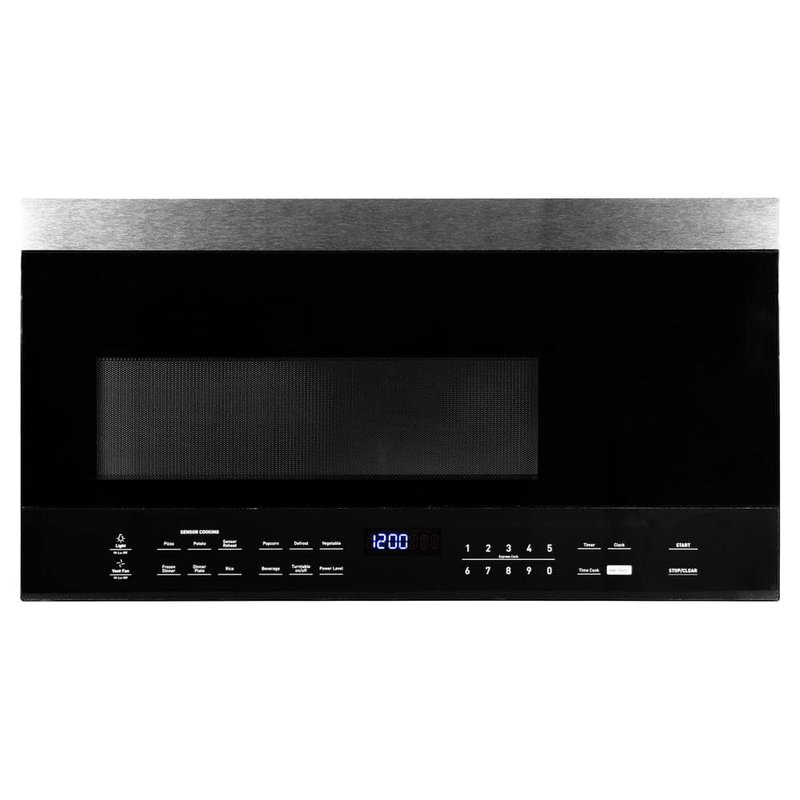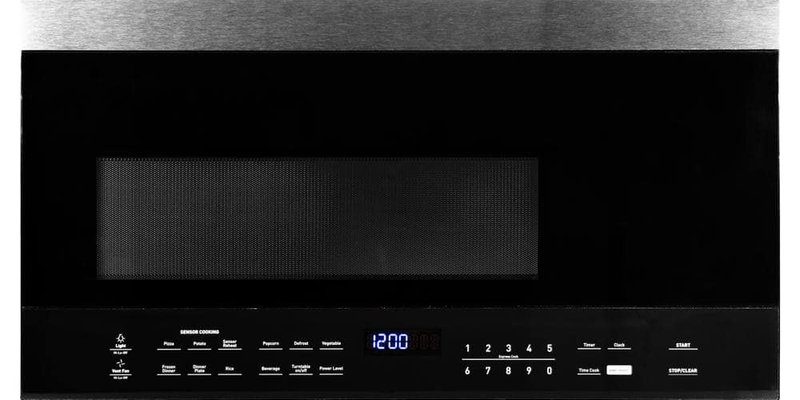
Think of the warranty like the microwave’s promise to you. It’s an agreement that if the product has a manufacturing hiccup or breaks down under normal use, Black+Decker will step up to fix or replace it without you having to dig deep into your wallet. But, just like any promise, there are limits and fine print you’ll want to know about. So, let’s pull up a chair and talk through exactly what this warranty covers—and what it doesn’t.
Understanding the Basics of the Black+Decker Microwave Warranty
At its core, the Black+Decker microwaves warranty is a limited warranty. What does that mean? Basically, the company guarantees that your microwave is free from defects in material or workmanship under normal home use for a specific period. Usually, this period is about one year starting from the date you purchased the microwave.
During this time, if your microwave stops functioning properly because of a manufacturing fault—let’s say the turntable motor fails or the keypad stops responding—Black+Decker will cover the repair or replacement. It’s not a lifetime safety net, but honestly, one year is pretty standard for consumer kitchen appliances.
You might wonder—does this warranty cover damage from me accidentally dropping my microwave or spilling water inside? Not quite. The warranty specifically excludes damage caused by improper use, accidents, modifications, or unauthorized repairs. So, treat your microwave kindly, and the warranty has your back.
What Parts and Issues Are Covered?
Let me explain how specific parts of the microwave are treated under the Black+Decker warranty. The warranty mostly covers internal defects that affect the microwave’s basic functionality. This includes:
- The magnetron: This is the heart of your microwave that generates the microwave energy to heat your food. If it burns out prematurely, that’s typically covered.
- Control panel and buttons: If your buttons or touchscreen stop responding properly and it’s not due to user error, this is usually on the warranty list.
- Turntable motor: The spinning plate is what ensures even heating, and if it fails without rough handling on your part, the warranty applies.
- Display screen: If the display goes blank or shows errors caused by internal faults, that’s covered.
On the flip side, parts like glass doors or the exterior casing might not always be covered if they’re cracked or broken due to falls or impacts. Honestly, warranties tend to focus more on the functional, internal components rather than cosmetic damage.
What the Warranty Does NOT Cover
Here’s where the fine print shows up. While the warranty sounds great, it doesn’t cover every scenario you might face. You might be wondering: “What if my microwave stops working because I plugged it into a surge protector and there was a power surge?” Sorry, but electrical damage caused by improper voltage or accidents usually isn’t covered.
Also:
- Wear and tear: Normal aging of parts, like a worn-out door seal or faded button labels, is expected and not under warranty.
- Damage from misuse: Dropping your microwave or spilling something inside that shorts the electronics? That’s on you.
- Unauthorized repairs: If you send your microwave to a repair shop not authorized by Black+Decker, any further damage that occurs might void your warranty.
- Damage from modifications: If you install aftermarket parts or try to hack your microwave, the warranty won’t cover resulting problems.
Think of the warranty as a safety net with boundaries—it protects you from manufacturing errors, not accidental damage or user mistakes.
The Process: How to Claim Your Black+Decker Microwave Warranty
If your microwave acts up within the warranty period, here’s the general route you’d take to get help. First, you’ll want to gather your proof of purchase—usually a receipt or invoice that shows when and where you bought your microwave.
Next, contact Black+Decker customer service—either by phone or through their website. They’ll likely ask for details such as the model number, serial number, and a description of the issue. Sometimes, they’ll help troubleshoot over the phone because certain problems can be solved with a quick reset or a simple fix like checking the power source.
If the issue can’t be resolved remotely, they will initiate a warranty claim. Depending on the problem, they’ll either arrange for a repair through an authorized service center or issue a replacement unit. You might have to ship the microwave or bring it to a local service provider, so be sure to check shipping instructions carefully.
Why Registering Your Microwave Matters
You might be thinking, “I bought it, so the warranty should just apply automatically, right?” Well, you’re mostly right. The warranty is generally tied to your receipt rather than registration alone, but registering your microwave with Black+Decker has perks.
Registration usually involves submitting your purchase info and product details through their website. Here’s why it helps:
- Faster service: When you register, Black+Decker already has your info saved, which speeds up any warranty claims or support calls.
- Recall alerts: If there’s a safety recall or important firmware update, registering means you’ll get notified directly.
- Proof of ownership: Sometimes, if you lose your purchase receipt, a registration can act as backup proof.
Honestly, it’s a simple step that can make your life easier if something goes wrong.
Extending or Upgrading Your Microwave Warranty
Here’s a quick insider tip: Black+Decker sometimes offers extended warranty plans or protection plans beyond the standard one year. These extended warranties can cover you for up to three years or more and sometimes cover accidental damage, which the basic warranty excludes.
Before buying extended coverage, weigh how much you use your microwave and the likelihood of needing repairs. For example, if your kitchen gets heavy daily use and you’ve had problems with appliances before, an extended plan could be like buying some extra peace of mind.
Also, check if you purchased your microwave from a retailer that offers its own protection plan. These are separate from the manufacturer’s warranty but sometimes overlap or add additional perks like faster repairs or replacements.
How Black+Decker Warranty Compares to Other Brands
You might be wondering how the Black+Decker warranty stacks up against other big-name brands like Panasonic, Samsung, or GE. Honestly, most kitchen microwave warranties are pretty similar—a one-year limited warranty covering defects in parts and workmanship.
Some premium brands may offer longer warranties or cover specific parts like magnetrons for extended periods. Others might bundle their microwaves with extended customer support or easier in-home repairs.
The key takeaway: Black+Decker’s warranty is straightforward and matches the industry standard. If you’re looking for longer coverage or specific protections like accidental damage, you might want to consider extended warranties or explore other brands, but for day-to-day reliability, Black+Decker gives you a solid baseline.
Taking Care of Your Microwave to Keep the Warranty Intact
Before wrapping up, let’s talk about one important thing: how to keep your microwave happy so you don’t accidentally void your warranty. Follow these simple care tips:
- Use it as intended: Don’t try to microwave metal containers or oversized items that could damage the interior.
- Keep it clean: Regularly wipe down the inside to avoid food buildup, which can cause smells or even damage electronics over time.
- Avoid DIY repairs: If something looks wrong, don’t try to open it yourself. That’s a quick way to void the warranty.
- Use proper power sources: Plug directly into a properly grounded outlet, avoiding power strips that can cause surges or drops.
Think of your microwave warranty like a fragile pact—it protects you, but only if you treat your appliance with basic care and respect.
“A warranty is like a safety net — but no net can catch you if you decide to jump without looking.”
Final Thoughts on the Black+Decker Microwaves Warranty
So, what does the Black+Decker microwaves warranty cover? To sum it up without really summing up: it’s a helpful promise that your microwave will work as intended for about a year, covering major internal parts and workmanship issues. It won’t cover accidents, misuse, or normal wear and tear, but it does provide peace of mind for that first year.
If you keep your microwave clean, use it properly, and save your receipt, you’ll be well-positioned to take full advantage of the warranty if needed. Registering your product is a smart move, and if you want extra safety, extended warranties might be worth considering.
At the end of the day, the warranty is there to support you, not bail you out of every kitchen mishap. But knowing what it covers—and what it doesn’t—is the key to avoiding surprises and keeping your microwave heating happily for years to come.
